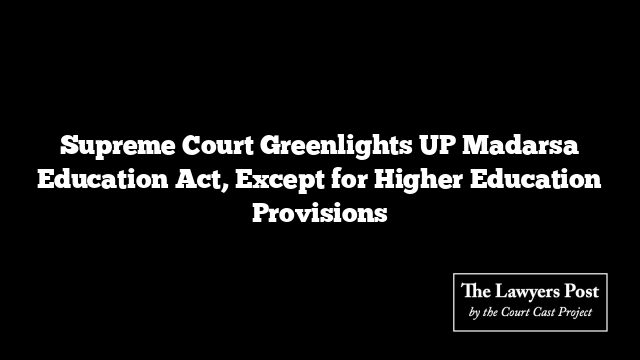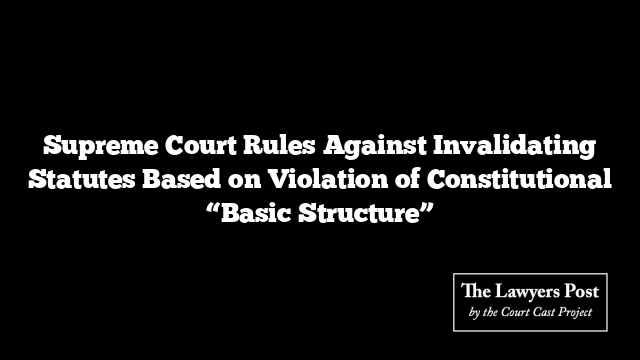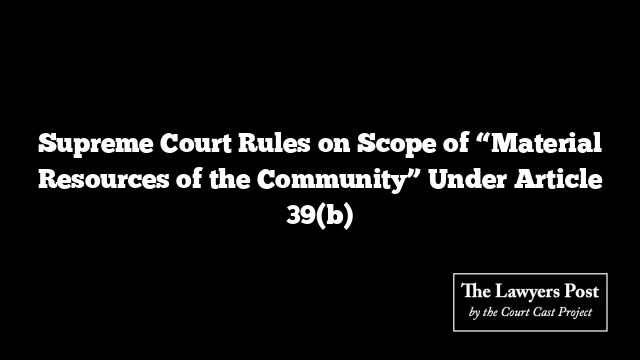In a significant ruling, the Supreme Court upheld the constitutionality of the Uttar Pradesh Board of Madarsa Education Act, 2004, overturning an earlier judgment by the Allahabad High Court that had declared it unconstitutional. The Court found the High Court’s stance flawed, especially its claim that the Act violated India’s secularism principle. The Supreme Court emphasized that statutes can only be invalidated for breaching fundamental rights or legislative competence, not for allegedly violating the Constitution’s “basic structure.”
The Madarsa Act, which sets educational standards for Madarsas in Uttar Pradesh, was lauded for its alignment with the state’s duty to provide education that prepares students for societal participation and economic independence. The Court affirmed that the Act supports the Right to Education Act while recognizing the rights of religious minorities to establish and manage educational institutions.
However, the Court also pointed out a conflict between the Madarsa Act’s regulation of certain higher education degrees (like ‘fazil’ and ‘kamil’) and the University Grants Commission (UGC) Act, rendering those provisions unconstitutional. The Madarsa Act’s oversight over Madarsa education, including its examinations and certificates, was praised for maintaining academic standards while respecting the minority character of the institutions.
The Supreme Court clarified that while Madarsas impart religious teachings, their core mission is education. The legislation’s regulatory framework, grounded in the Concurrent List of the Constitution, remains well within the state’s legislative powers. Religious education, the Court concluded, doesn’t automatically disqualify an institution from state recognition, as long as participation in religious activities is voluntary.
This ruling overturns the Allahabad High Court’s earlier judgment, which had also proposed integrating Madarsa students into the formal education system. In contrast, the Supreme Court emphasized the Act’s role in preserving the unique educational character of Madarsas while balancing it with the nation’s secular ideals.





